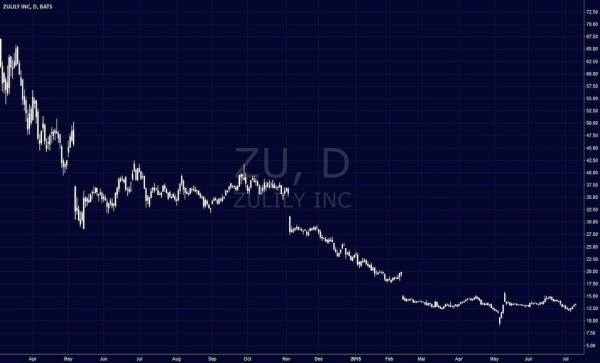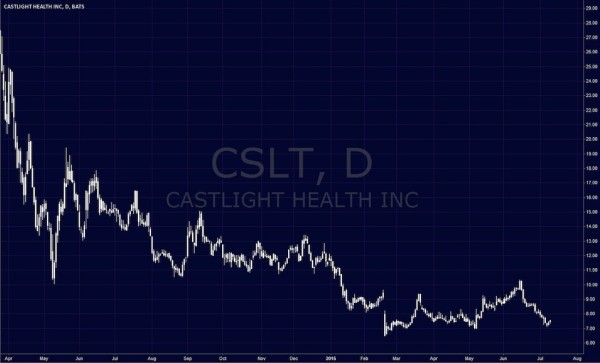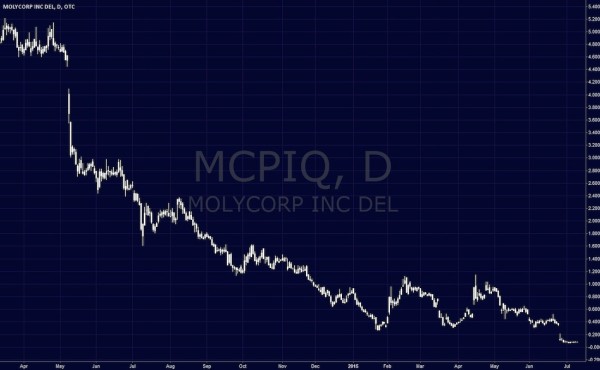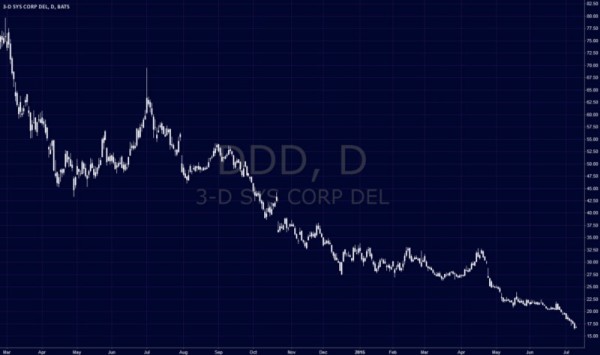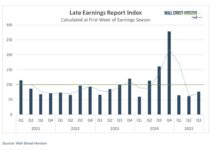Statistically, stocks with the highest short interest in the marketplace are among the worst performers every year.
A study done at Harvard and MIT entitled Short Interest and Stock Returns. While a bit dated (from 2004), the data and observations are still valid. Here’s what they concluded:
“Our results indicate that the only class of stocks that reliably produce negative abnormal returns is that of small cap firms with extremely high short interest ratios. An investor selecting stocks for a portfolio should avoid stocks with a high short interest ratio. If an investor already owns a stock that develops sustained high short interest, the clear and strong advice is to sell the stock immediately.”
I want to illustrate further with some recent examples, 4 stocks that in 2014 had some of the very highest short interest as % of the float of the entire marketplace with short interest ranging from 40% to more than 60% at times, Zulily (ZU), Castlight Health (CSLT), Molycorp (MCP) and 3-D Systems (DDD). Note these charts are through summer and only serve as examples in the context of the article.
In these 4 instances I saw some investors/traders use the very high level of short interest (“The monster short covering rally is coming”) to rationalize their thesis for buying these stocks over the past year, while they all had some short lived episodes of short squeezing, they all left a big hole in your portfolio if you held on to them.
In Summary
To sum it up, having a large number of investors, some of them among the most sophisticated in the marketplace, betting that a stock is going to fall is NOT a positive for that stock, as for the market wide short interest, it is the sum of the bets made against individual stocks, an uptick in the number of these bets being made does not strike me as a positive.
I am not certain that any conclusion can be inferred from the market wide short interest reaching a high level given the number of variables and cross-currents at play(various hedging strategies, ETFs, options etc…) but if you want to draw one it’s not a “positive”.
If you have any observations, comments, disagreements or questions, please comment below or reach out to me on Twitter.
Additional resources: Why Shorts are Informed? (Columbia, Cornell, A&M — Journal of Finance 2007) — What does Short Interest tell you? (Investing Sidekick)
Thanks for reading.
Twitter: @JFinDallas
Any opinions expressed herein are solely those of the author, and do not in any way represent the views or opinions of any other person or entity.

